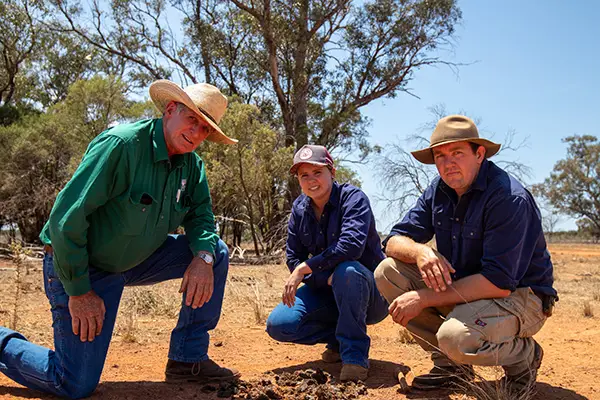
Dennis Donohoe, farm manager with Aminya Pastoral, is a seasoned producer with decades of experience, and his story is a testament to how even minor changes in farming practices can lead to significant improvements in productivity and land health.

Location: “Geandale Station”, 46 km south of Cobar, Western NSW
Property size: 8,640ha
Average annual rainfall: 368mm
Enterprise: Dorper breeding and fattening lambs, and trade cattle
Achievements:
Drivers of Success:
RCS services used:
Cobar locals Simon and Laura Prince manage ‘Geandale Station’, 46 km south of Cobar. They purchased the property from Simon’s parents in 2022, which has meant a lot for their young family.
“To bring up our sons George and Bill the way I was raised is fantastic; farming can give kids a great childhood,” Simon said.
Laura also reflects on how working in ag is good for young families.
“Agriculture is amazing — I’ve worked in other industries and there’s no way I’d be allowed to take our kids to work or along to a course,” she said.
“Bill and George get to have a great time and experience farming, and we all get to be involved.”

Picture: Laura and Simon Prince with RCS Advisor Raymond Stacey.
The Prince’s road to farming was not linear — after leaving school, they both started industrial trade apprenticeships in Cobar.
A purchase of a dozer in 2012 then saw the start of Simon’s earthmoving business, which the Princes managed on weekends and evenings after their full-time jobs.
“Between our trades and the earthmoving business, we had a few good years which helped purchase our first block, ‘Multagoona’ in 2017,” Simon said.
An hour’s drive south of Cobar, the 15,925ha property had plenty of potential and the Princes set out to develop its infrastructure.
“We probably weren’t ready for it financially, but it was an opportunity to be in farming and we jumped at it,” he said.
“We just took the risk and put a lot of hours into it to get ahead.”
The Princes bought ‘Multagoona’ just on the cusp of the 2017-2020 drought, which saw their workload increase dramatically and a few challenging years.
“It was some of the worst years on record, but we had a mindset to make it work,” said Simon.
“We got to see hard and fast what drought was like,” Laura recalls.
“We both worked full time and carted water out for our sheep after work, as well as doing improvements on the place on the weekends.
“It was stressful and put a lot of extra pressure on everything.
“But we did it, and fairly early on we knew we needed to drought-proof ourselves in the future.”
After the Princes purchased Simon’s family farm ‘Geandale Station’ in 2022, they set out to improve their knowledge and capacity to manage the land.
A local field day was the catalyst for working with RCS.
“An RCS field day was happening just down the road from us; we knew these people reasonably well and heard they were doing some pretty cool things,” Laura said.
“So we went for a look, and really enjoyed the day.
“We spoke to the RCS staff there, who encouraged us to apply for the Soil and Landscapes Drought Resilience Program.”
Simon was also very interested in working with RCS and improving his knowledge.
“Laura and I both did our trades, and you don’t go into a trade without being trained,” he said.
“Farming is just the same; you’ve got to educate yourself and that’s why we went down the RCS track.”
Over the last 18 months the Princes have worked with RCS to upskill as managers and business owners.
The Drought Resilient Soils and Landscapes Program gave them access to training, mentoring, business tools and a supportive network. Through the program they were able to:
This project is supported by RCS, through funding from the Australian Government’s Future Drought Fund.
The Princes are keen to continue the work of Simon’s parents on ‘Geandale Station’.
“Dad worked hard over the last 30 years to develop the property, and did a really good job in establishing perennial grasses with rotational grazing,” Simon said.
“Through the RCS program, we have been able to better manage our groundcover through feed budgeting and the MaiaGrazing software.”
Laura also has valued the grazing training and resources available.
“Our experience with the MaiaGrazing software has been really positive,” she said.
“We had an idea of how we wanted to leave a paddock in, but to be able to put those thoughts into numbers and forecast ahead for the future is great.
“Even though we’re in drought now (late 2023), it’s very fulfilling to be able to look around at our animals and paddocks and see they are still in good condition.”
The Drought Resilient Soils and Landscapes Program has also introduced Simon and Laura to a network of farmers willing to share their experiences.”
“Although you think you’re doing it the best way you can, there’s always someone doing it better,” Simon said.
“In such a short period we’ve been able to meet like-minded people who want to improve their land and management.
The Princes’ RCS mentor, Raymond Stacey, sees a strong future ahead for Simon and Laura.
“The Drought Resilient Soils and Landscapes project is about supporting graziers to manage their country and businesses better,” Raymond said.
“I see an operation here where they’re working hard on their planning and putting their plans into action to leave their country, business and people in better shape.”
Find out more about the RCS Drought Resilient Soils and Landscapes Program.

Recorded live from BEEF 2024, join Jess Bidgood, RCS Project Coach, for an informative session about the RCS project and its successful outcomes.
Profitable Paddocks is our educational newsletter sent to your email inbox every quarter.
Click the Bell for the latest blogs.

Dennis Donohoe, farm manager with Aminya Pastoral, is a seasoned producer with decades of experience, and his story is a testament to how even minor changes in farming practices can lead to significant improvements in productivity and land health.
Once you have ownership as to why planning is important, the next ingredient is to work out where and how you will do your planning. When you write something down you change your relationship with the content. I cannot emphasise enough the power of getting your thoughts and plans out of your head onto paper or the computer.
The season in SA and Tassie is particularly tight right now with little or no useful rain since early January and a generally failed 2023 spring prior to that. Right now, across southern Australia and much of the eastern NSW, you won’t need to drive far out into the countryside to see cattle and sheep grazing (and lying on) hay and silage trails lined across paddocks.
Martha Lindstad and partner Robert James are farm managers on ‘Karalee’, Enngonia NSW. Both have travelled different paths to being where they are. Martha is originally from Norway, growing up on a three hectare farm before travelling to New Zealand and eventually the Pilbara in Western Australia. It was here that she saw the benefits of sustainable farming for the country and livestock.
The Prince’s RCS mentor, Raymond Stacey, sees a strong future ahead for Simon and Laura. “The Drought Resilient Soils and Landscapes project is about supporting graziers to manage their country and businesses better,” Raymond said. “I see an operation here where they’re working hard on their planning and putting their plans into action to leave their country, business and people in better shape.”

Join our mailing list
